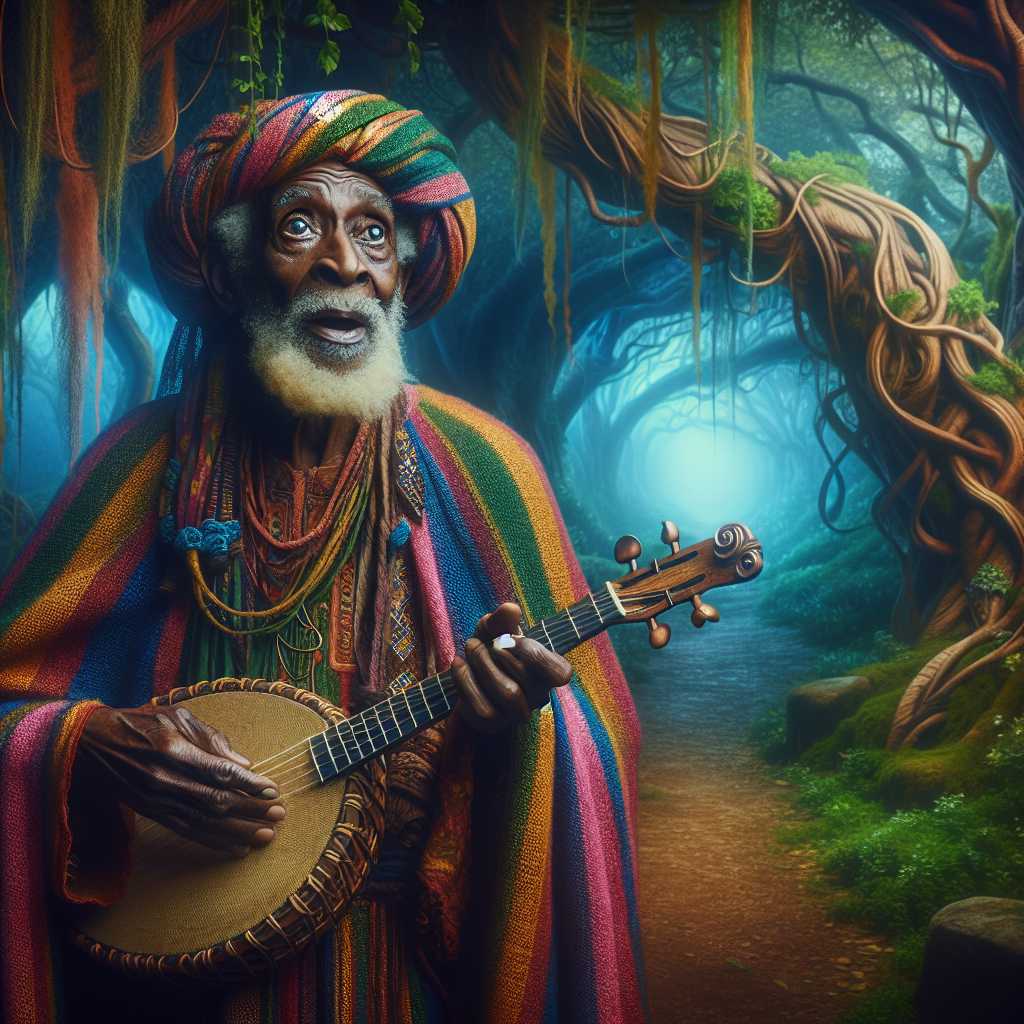
Once upon a time, in a small, forgotten village nestled at the edge of an ancient forest, there lived a man named Elias. He was known far and wide for the music he coaxed out of his wooden flute, a sound so enchanting that it seemed to summon the spirits of nature itself.
Elias, despite his gift, was a man of few words. His life was a simple thread woven into the tapestry of daily village life. However, behind the quiet facade lay a sorrow as deep and endless as the starry sky. He bore a grief, one not easily dismissed or spoken aloud, yet palpable to those who caught his faraway gaze.
Many years ago, Elias had a beloved named Liora, whose laughter was a melody only the heavens could compose. They were the joy of the village, inseparable as sunlight and shadow. But tragedy struck on a winter’s eve when a fever swept through the village. Elias watched helplessly as Liora, his heart's anchor, slipped away like a fleeting mist.
Grief-stricken, Elias poured his soul into his music. **Every note was a cry, every melody a lament.** The villagers would gather at dusk to listen, captivated by the haunting beauty that seemed to echo through the forest itself. Sometimes, on the gentlest of nights, a nightingale would join in, weaving its own mournful tune into Elias’s desperate symphony.
“The forest hears him,” the villagers would whisper, “and weeps with him.”
One day, as dawn kissed the horizon, a curious traveler stopped by the village. Her name was Mara, a young woman with eyes like the autumn leaves and an unyielding curiosity about the world. Drawn by tales of the mysterious music, she sought Elias out, hoping to understand the sorrow that transformed simple notes into ethereal enchantment.
She approached him as he sat by the river, his fingers dancing over the flute in a silent conversation with the breeze. Elias, startled, paused and looked up. At that moment, in the quiet of the morning, something softened in those deep pools of sadness. Mara introduced herself, her voice gentle and genuine.
Over the days that followed, she would sit beside him as he played, offering silent companionship. Mara asked him nothing of his loss, only sharing snippets of her travels, tales of distant lands, and dreams of endless horizons. Slowly, a friendship grew, fragile yet steadfast.
One evening, with the sun bleeding into the horizon, Mara dared to speak of Liora. She spoke of love and loss, of the unyielding passage of time that forged life’s most intangible connections. Elias listened, his heart stirred by the unspoken understanding that filled the spaces between her words.
“The music you play,” Mara ventured, “it speaks not only of grief but also of infinite love.”
Elias nodded, his voice finding its way through the years of silence. “It is all I have of her.”
As seasons turned, so did Elias’s music. Under Mara’s gentle influence, his melodies began to shift. They spoke of hope and renewal, entwining sorrow with the warmth of cherished memories. The village, too, felt the subtle change and leaned into the new rhythm of Elias's soul.
However, life is an unpredictable tapestry, woven with threads both glorious and grim. One fateful day, Mara prepared to leave, her wanderlust calling her to distant shores. The morning of her departure, Elias sat alone by the river, the flute’s voice bitter-sweet in the early light. Mara, approaching him for the last time, handed him a small, leather-bound journal.
“For your stories and songs,” she said, her smile tinged with the melancholic beauty of farewell.
They parted by the old oak tree, words fleeting and eyes lingering. Elias watched her silhouette vanish into the forest, taking with her a new chapter of his life. His heart ached anew, yet within him, a small ember of happiness glowed—a warmth borne from the knowledge that his music, and his memories, would continue to live.
In the years that followed, Elias remained in the village. He tended to the trees and the riverbank with a quiet devotion, his flute ever at his side. The forest, with its song and shadows, became a companion rather than a solitary refuge. Mara’s journal accompanied him, slowly filling with words and notes, a testament to lives touched and stories shared.
One winter’s night, as snow gently shrouded the earth, Elias sat before his fire. The flames cast long shadows upon the walls of his small home, and the flute lay silent across his lap. It was then, in the stillness, that he felt a familiar presence—a tenderness that embraced him like starlight. Perhaps it was the forest, or perhaps it was the spirit of Liora, at peace with his new-found solace.
And so, the story of Elias—of love lost and friendship found, of sorrow intertwined with hope—became a whispered legend among the villagers. It was a tale told beneath ancient boughs and along the river’s edge, a song both eulogized and celebrated by the wind.
Thus, in the heart of that forgotten village, Elias’s legacy endured—a poignant reminder that even amidst the deepest sorrow, the music of the heart could heal and bind, sustaining life’s endless rhythm.
```









